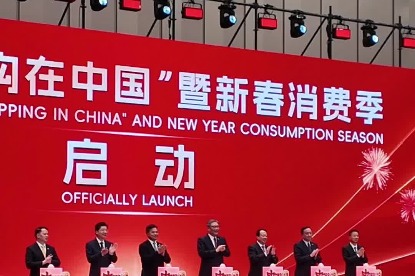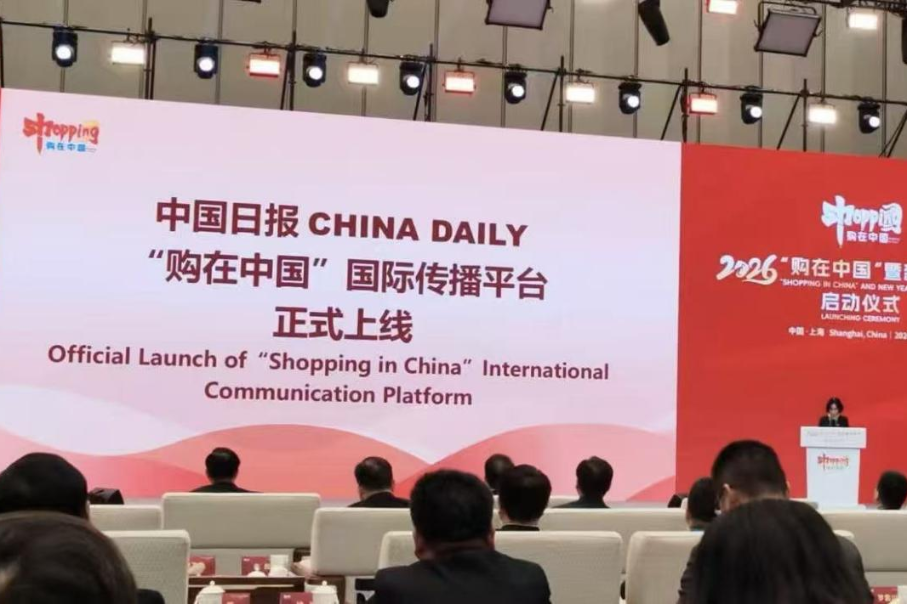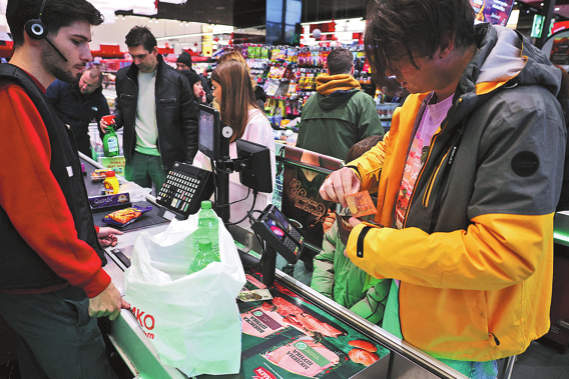Setting the standard

UK agency helps Chinese small, medium-sized businesses move up the quality ladder
China can learn from the UK's experience in helping small and medium-sized businesses implement food safety standards, says Jenny Morris, principal policy officer of the London-based charity Chartered Institute of Environmental Health.
"Larger businesses often have resources to follow regulations in a more scientific way, but smaller businesses require more support in understanding and implementing standards in a practical way," Morris says.
The UK itself took a rather long route to find the best way of supporting SMEs, she says. " We realized that it was not enough to support the SMEs with monitoring and inspection facilities. They also needed information on how to achieve the correct standards, and this is something that we hope can be shared internationally."
Set up in 1883 to provide training to environmental health sector professionals, the institute has become a global organization that provides training in the US, Africa, the Middle East and Asia.
It has worked in China since 1988 to provide food safety training to the Chinese subsidiaries of some Western food companies it was already working with, including Walmart and Tesco.
Over time, more Western and Chinese companies have expressed interest in its training programs, and in 2006 the institute contracted its training services to China Chainstore and Franchise Association, thereby allowing its programs to reach a wider audience.
Since then, the institute training has reached employees and managers from more than 50 major retailers and food franchises throughout China. Some of the chain store and restaurant managers come to the institute headquarters to attend seminars, an essential part of their learning process.
A few years ago the institute also won a contract with the local government of Chongqing city to provide health and safety awareness training for business managers and local food safety regulators. The training was carried out in the UK over 10 days.
Apart from government officials, most of the Chinese visitors to the institute are private restaurant chain owners or supermarket chain owners who are keen to acquire the best international practices.
Morris says visiting delegations from China often ask her teams about how the UK ensures food safety rules are followed, particularly for smaller businesses that typically have few resources to comply with standards.
"They are interested in how we get the outcome, particularly for businesses in the catering and hospitality area," she says.
Different from bigger businesses in the manufacturing sector, which can be regulated in a scientific way using legislation, smaller businesses in catering can be influenced by factors in the preparation of food, particularly in terms of customer preferences.
Therefore regulations must take into account these varying factors when supervising the catering sector businesses, she says.
"In the past, we told restaurants to follow food safety standards in a scientific way. For example, we told them to write down things like cooking temperatures, but in reality they don't have time. So they may not do it, or at the end of the day just put down what they think happened," she says.
A few years ago, Morris' team worked with the government to help make the regulations more practical for smaller businesses to follow.
Instead of asking them to cook food at an exact temperature, they may estimate the temperature by making sure that liquids are boiling or by checking the center of poultry meat to make sure it is fully cooked - it must not be pink or red, she says.
However, Morris admits that even the UK's food safety monitoring is not perfect, as shown by the recent horse-meat scandal.
Morris says the scandal alerted the UK's food safety regulators on the need to check supply chains more closely, as the beef found with horse DNA was imported from other European countries through a complicated supply network.
She says that since China is a large country with a wide food supply chain across different parts of the country, it could potentially learn from Europe to increase transparency and traceability by sharing information across different provinces or cities.
Morris says that institute looks forward to working more closely with China, as the organization is now setting up a consultancy arm that can advise businesses on food safety and management issues.
"China is a very important market for us. We can't tell China what to do, as everything needs to be adapted to local circumstances, but we do have lots of experiences that we are keen to share with China."
Contact the writers at qiubo@chinadaily.com.cn and cecily.liu@chinadaily.com.cn
| Jenny Morris says smaller businesses require more support in understanding and implementing standards in a practical way. Provided to China Daily |
(China Daily Africa Weekly 10/11/2013 page15)
Today's Top News
- US military action in Venezuela tramples over international law
- National railways carry 4.255b passenger trips in 2025
- Chinese capital declares major victory against air pollution
- US' seizure of Maduro has no legal basis
- US faces domestic criticism over military operation in Venezuela
- Captured Maduro, wife arrive in New York by plane






























